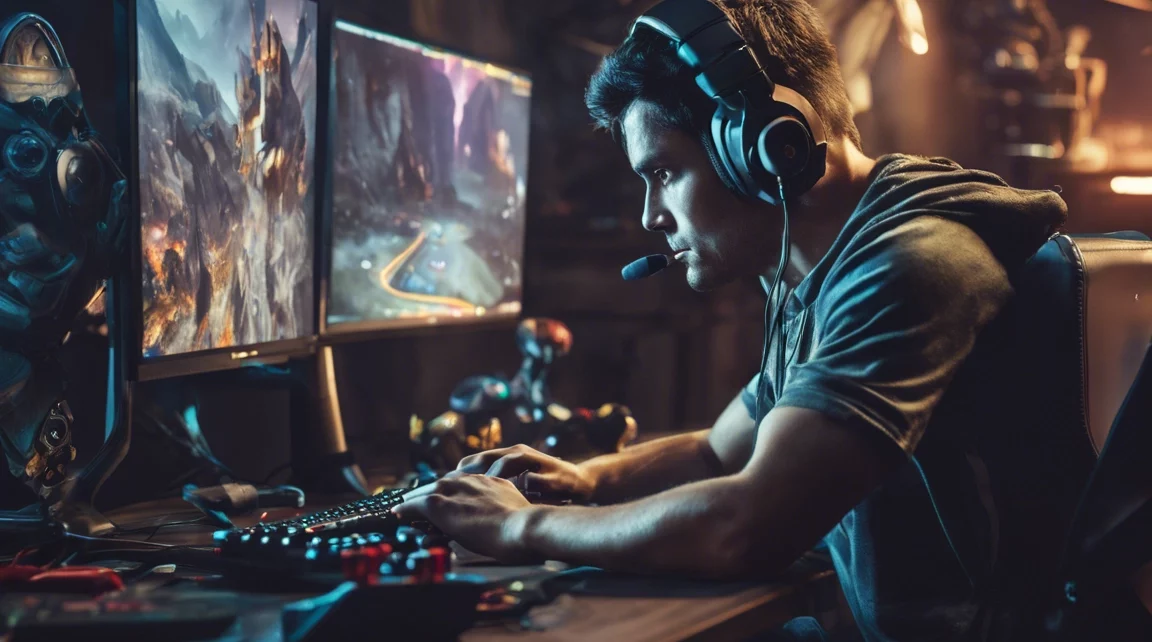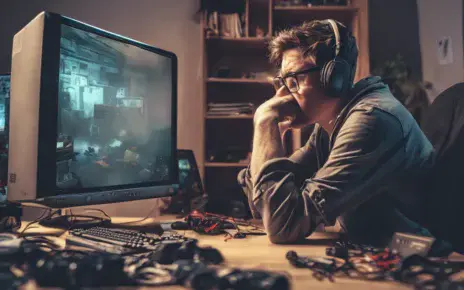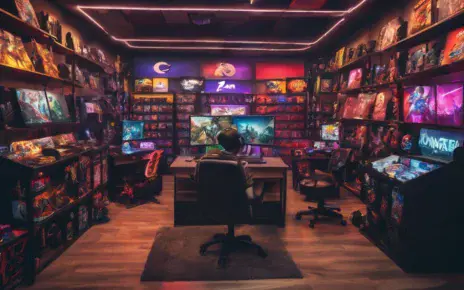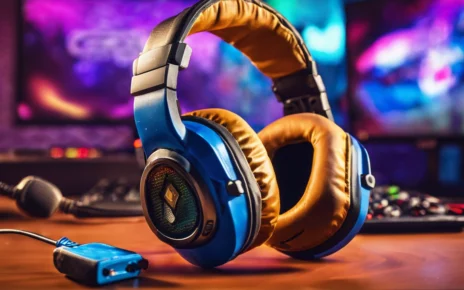Improving your gaming skills isn’t just about reacting quickly or smashing buttons. It’s about understanding the game’s mechanics, applying strategic thinking, and practicing with intention. Whether you’re new to gaming or looking to get better fast, it’s essential to learn the right techniques, make use of available tools, and build a supportive community to speed up the learning curve.
This guide will dive into the best practices, tips, and resources to boost your skills across various game genres, from first-person shooters (FPS) to multiplayer online battle arenas (MOBA), and everything in between.
1. Master the Basics: Building a Strong Foundation
Before you jump into advanced strategies, make sure you have a solid grasp of the game’s core mechanics. The foundation for gaming success comes from knowing the basics inside and out. These fundamentals include:
- Controls and Layout: Take time to familiarize yourself with the controls. Whether you’re playing on a controller or keyboard and mouse, knowing the layout helps you respond faster during gameplay.
- Game Mechanics: Learn how your character or vehicle interacts with the environment, enemies, and objectives. Each game has unique mechanics, so understanding how they work allows you to maximize your performance.
- Map Knowledge: Memorizing the map is crucial, especially in FPS and battle royale games. Knowing where to find loot, health packs, or the best defensive positions can give you a strategic edge.
Fact: According to studies, players who spend time learning game mechanics and map layouts have a 30% higher chance of improving their win rate in competitive games.
Actionable Tip:
Play through tutorials or single-player modes before diving into multiplayer. Most games offer these modes to help you master the basics without the pressure of real-time competition.
2. Tailor Your Training to the Genre
Each game genre demands different skills. For example, FPS games like Call of Duty require fast reflexes and precision aiming, while strategy games like StarCraft require in-depth planning and multitasking. By focusing on the key skills of each genre, you can tailor your practice to make the most progress.
- FPS Games: Quick reflexes, aiming accuracy, and spatial awareness are essential. Practice in aim-training simulators like Aim Lab or Kovaak’s to boost your accuracy.
- Strategy Games: Patience, resource management, and map awareness are crucial. Watch how professional players approach early game builds and endgame strategies to improve your overall tactics.
- RPGs or MMOs: Focus on leveling up characters, learning optimal skill rotations, and effective teamwork in raids or dungeons.
Pro Tip: Different games require different levels of concentration and focus. Use training tools that mimic real game scenarios to help you develop the exact skills needed for your genre.
3. Optimize Your In-Game Settings for Better Performance
One of the most overlooked aspects of improving your gameplay is adjusting in-game settings to your personal preference and hardware. Customizing these settings can have a significant impact on how you perform. Here are some critical settings to focus on:
- Sensitivity Settings: Lowering or raising sensitivity can improve your aiming precision, especially in FPS games. Pro players often tweak these settings to align with their reflex speed and playstyle.
- Graphics and Resolution: Lowering the graphics can reduce lag and boost FPS (frames per second), creating smoother gameplay. Higher FPS gives you an edge in reaction times, especially in fast-paced games like Fortnite or Valorant.
- Custom Control Layouts: Modify your button mapping to make crucial actions quicker to perform. For instance, moving jump or reload to a more accessible button could improve your reaction time in key moments.
Fact: In competitive eSports, players often tweak their settings to maximize performance, even lowering graphics to ensure higher frame rates and reduced input lag.
Actionable Tip:
Research the optimal settings for your specific game and hardware setup. Many professional players share their configurations online, which can serve as a useful starting point.
4. Strategic Practice Techniques for Rapid Improvement
Improvement in gaming mirrors learning a musical instrument—consistent, focused practice yields the best results. Randomly playing matches won’t lead to steady improvement. Instead, adopt strategic practice techniques:
- Training Modes: Use built-in game training modes to master specific skills like aiming, combos, or map navigation. Many games also offer bot modes to practice without the stress of live competition.
- Break It Down: Focus on one skill at a time. For example, if you’re playing an FPS, dedicate one session to improving your headshots or movement techniques. Breaking your practice into smaller components helps prevent burnout and accelerates improvement.
- Use Replays for Self-Analysis: Watch replays of your gameplay to spot mistakes and patterns. This allows you to see where you went wrong and identify areas for improvement, like positioning or decision-making during key moments.
Fact: Research shows that athletes who watch replays of their performance improve faster than those who don’t. The same principle applies to gaming.
Actionable Tip:
Set specific, measurable goals for each practice session. For example, “improve headshot accuracy by 10% in the next 5 games” or “increase kill-to-death ratio by 0.5.” Tracking these goals will keep you motivated and allow you to measure progress.
5. Leveraging Technology and Tools to Gain an Edge
In the modern gaming world, technology can help boost your skills. From specialized gaming gear to performance-enhancing software, there are tools to help you optimize your play:
- Hardware and Peripherals: A quality gaming mouse, mechanical keyboard, or high-refresh-rate monitor can make all the difference in precision and speed. Use gaming peripherals that match your playstyle for improved responsiveness.
- Performance-Tracking Software: Use apps like Overwolf or Tracker.gg to monitor your stats across multiple games. These tools provide detailed analytics on your strengths and weaknesses, helping you adjust your strategy accordingly.
- Aim-Training Software: Tools like Aim Lab or Kovaak’s FPS Aim Trainer are essential for FPS players looking to improve their accuracy. Daily drills using these programs can drastically improve your reflexes and shooting precision.
Pro Tip: Check your internet speed before playing online multiplayer. A stable, fast connection can make the difference between lagging behind or landing that crucial kill.
6. Join a Gaming Community to Learn and Grow
Gaming isn’t a solo journey. One of the most effective ways to improve quickly is by becoming part of a gaming community. By interacting with other players, you can learn new strategies, get feedback, and stay motivated:
- Join Forums and Groups: Communities on Reddit, Discord, or even in-game clans offer a wealth of knowledge from experienced players. You can ask questions, share strategies, and participate in discussions about the game’s meta or tactics.
- Watch Pro Players: Watch streams of professional players or top-ranked streamers on Twitch or YouTube. Observe how they approach tough scenarios, and try to replicate their movements, decision-making, and strategies.
- Participate in Competitions: Playing in ranked matches or entering tournaments is a great way to apply everything you’ve learned under pressure. Even if you don’t win, the experience helps build your resilience and exposes you to higher-level players.
Fun Fact: Many pro gamers attribute their growth to surrounding themselves with better players who challenge them to improve.
Actionable Tip:
Engage in community challenges or friendly scrimmages with higher-ranked players. These experiences will push your skills and offer valuable feedback to help you get better, faster.
7. Consistency is Key: Daily Practice and Incremental Gains
Consistency is the key to rapid improvement in any field, and gaming is no different. Dedicate a specific amount of time each day to focused practice sessions. Balance these with breaks to avoid burnout. Here’s a simple routine to maximize improvement:
- Warm-Up: Spend 10-15 minutes in practice modes or aim-training programs to get into the flow.
- Focused Play: Focus on improving one aspect of your gameplay for each session—whether it’s improving accuracy, positioning, or map awareness.
- Review and Reflect: After each session, watch replays or review your performance stats to see where you excelled and what can be improved.
Fact: Players who practice consistently see a 20-30% improvement in their performance within a few weeks compared to those who practice sporadically.
Conclusion: Your Path to Mastery
Improving your gaming skills fast requires dedication, smart practice, and making the most of available resources. Whether you’re fine-tuning your aim, optimizing your in-game settings, or learning from top players in the community, the combination of these strategies will lead to faster improvement.
Remember, the road to mastery is a marathon, not a sprint. Consistency, patience, and a willingness to learn will help you reach your goals and become a better gamer. Keep practicing, stay connected with other players, and continue pushing your boundaries. You’ll be amazed at how quickly your gaming skills skyrocket!




